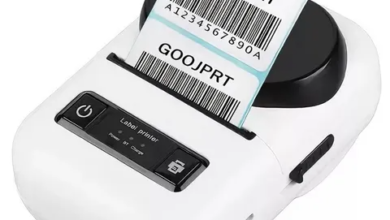Evaluating the Accuracy of DocVA Healthcare Virtual Assistants

The emergence of health assistants tailored for virtual support, like DocVA, has significantly changed the delivery of healthcare services. These healthcare virtual assistants utilize algorithms to engage with patients, handle scheduling tasks, offer medication reminders, and provide insights on health conditions. With the increasing reliance on technology in healthcare, it is crucial to evaluate the accuracy of these assistants to ensure they offer dependable assistance in clinical settings.
Grasping Precision within Healthcare Environments
Precision concerning health assistants encompasses aspects such as the correctness of information delivered, the dependability of interactions, and the overall efficacy in meeting patient requirements. In healthcare contexts, precision holds importance as it directly impacts outcomes. A miscommunication or incorrect information could have repercussions such as misdiagnoses or inappropriate treatment approaches. To gauge precision effectively, it is essential to establish metrics that can objectively assess the performance of technologies like DocVA. This often entails analyzing user engagements, evaluating response accuracy levels, and constantly enhancing algorithms based on input and data. Moreover, it is critical to compare the effectiveness of these assistants with healthcare practices to comprehend their role in improving patient care.
The Significance of User Experience
User experience plays a role in evaluating the accuracy of healthcare assistants. To ensure the success of a system like DocVA, it must be easy to use, intuitive, and accessible. The design should include populations with varying levels of tech knowledge. If users need help navigating the system or finding it confusing, it raises the chances of errors in communication and data input, which could impact the assistant’s accuracy. When examining user experience, usability tests can be carried out to observe how actual patients and healthcare providers engage with DocVA. Metrics like task completion time, error rate, and user satisfaction scores indicate how the assistant functions in a clinical environment. By prioritizing user involvement, developers can pinpoint areas for enhancement to refine the assistant’s accuracy and effectiveness.
Read also: The Evolution of Digital Technologies : yanzaomen, vaulsoft, nfqdfy, eurofutol, and sppk21bs
Data Security and Precision
Data privacy is another critical aspect in evaluating the accuracy of DocVA healthcare assistants. Healthcare information is confidential, and breaches can have repercussions not only for individuals but also for healthcare organizations. Hence, ensuring that DocVA’s communication channels, data storage methods, and processing adhere to regulations such as HIPAA in the United States is essential. Maintaining the confidentiality and security of information while providing data requires careful management. It is crucial to consider the algorithms behind assistants when addressing data privacy. Algorithms that rely on incomplete data can lead to results. Monitoring how these algorithms develop over time with data inputs and whether they exhibit biases towards groups is essential. Regularly evaluating and adjusting the algorithms ensures accuracy and equitable care for all populations. One advantage of healthcare assistants like DocVA is their continuous ability to use machine learning frameworks. Unlike systems, these assistants can adjust their interactions based on information, user feedback, and evolving health guidelines. Through reinforcement learning, DocVA can enhance its accuracy by learning from mistakes and successes. This dynamic feature allows precision in assisting patients in managing chronic conditions that require ongoing adjustments to treatment plans.
Introducing real-time feedback mechanisms can further improve accuracy. For instance, patients could be encouraged to report any inaccuracies or challenges they face while using DocVA.
This feedback is crucial for developers to enhance the algorithms and improve the assistants’ responses. By creating a feedback environment, the system not only advances to provide better services but also values users’ experiences and insights. Engaging with healthcare professionals is vital in evaluating and improving the accuracy of healthcare assistants. Collaborations between tech experts and clinicians offer insights into needs and potential challenges and ensure alignment with clinical best practices. Healthcare professionals bring knowledge of concerns, contributing significantly to shaping DocVA’s future functionalities.
Moreover, educating healthcare providers on using assistants can promote seamless integration into clinical workflows. This partnership enhances the technology’s potential in care, reinforcing accuracy and confidence in using assistants. Involving healthcare professionals in design and evaluation processes provides an understanding of the landscape for DocVA developers, leading to enhanced outcomes.
Assessing outcomes is an aspect of evaluating the effectiveness of DocVA healthcare assistants.
The evaluation of DocVA healthcare assistants’ accuracy involves considering factors such as user experience, data privacy, continuous learning, collaboration with healthcare professionals, and measurable outcomes. We can better understand how well these digital assistants support patients and healthcare providers by assessing these elements. As healthcare technology advances, it is crucial to ensure that tools like DocVA offer dependable patient care to improve the healthcare landscape. Each aspect of assessment plays a role in establishing a foundation that ensures the accuracy of information, builds trust, and instills confidence in users regarding digital healthcare solutions.
Achieve online excellence with a tailored website audit for doctors from SEOEchelon.com.




